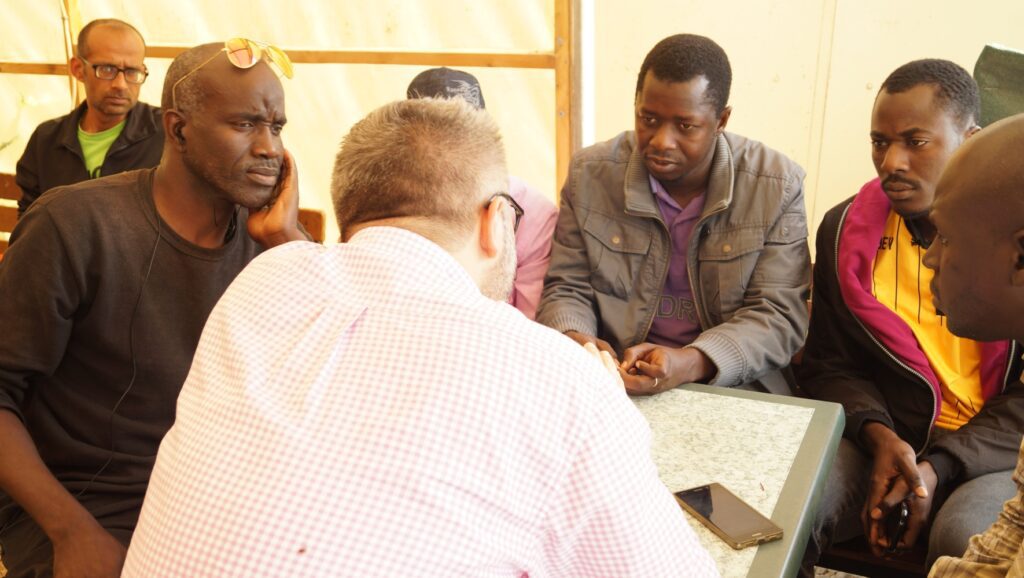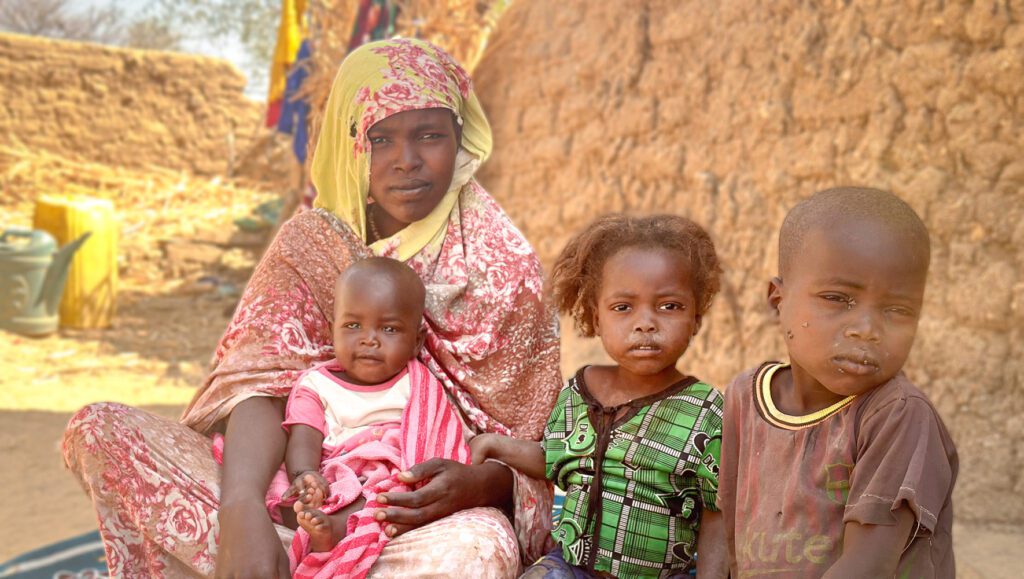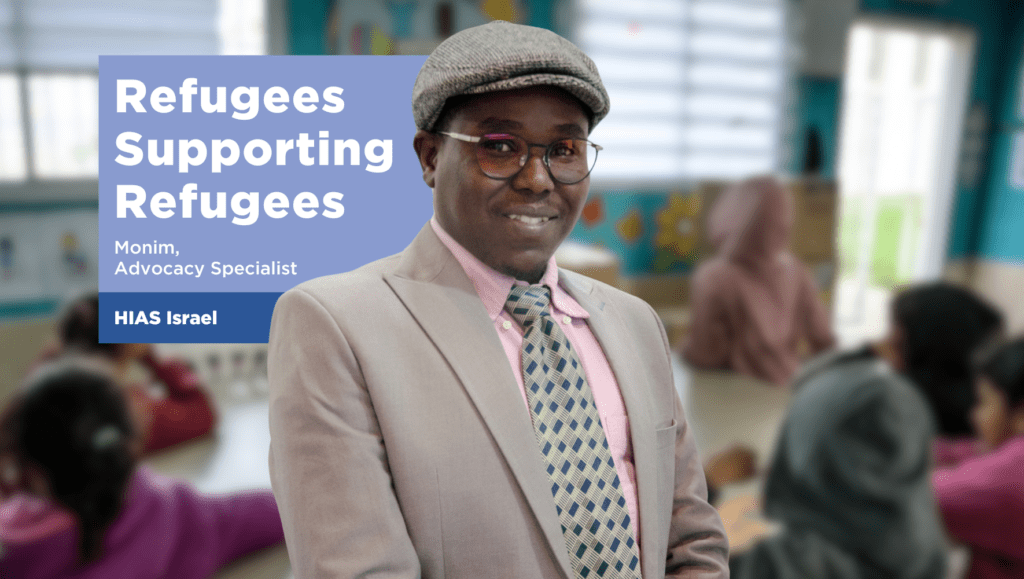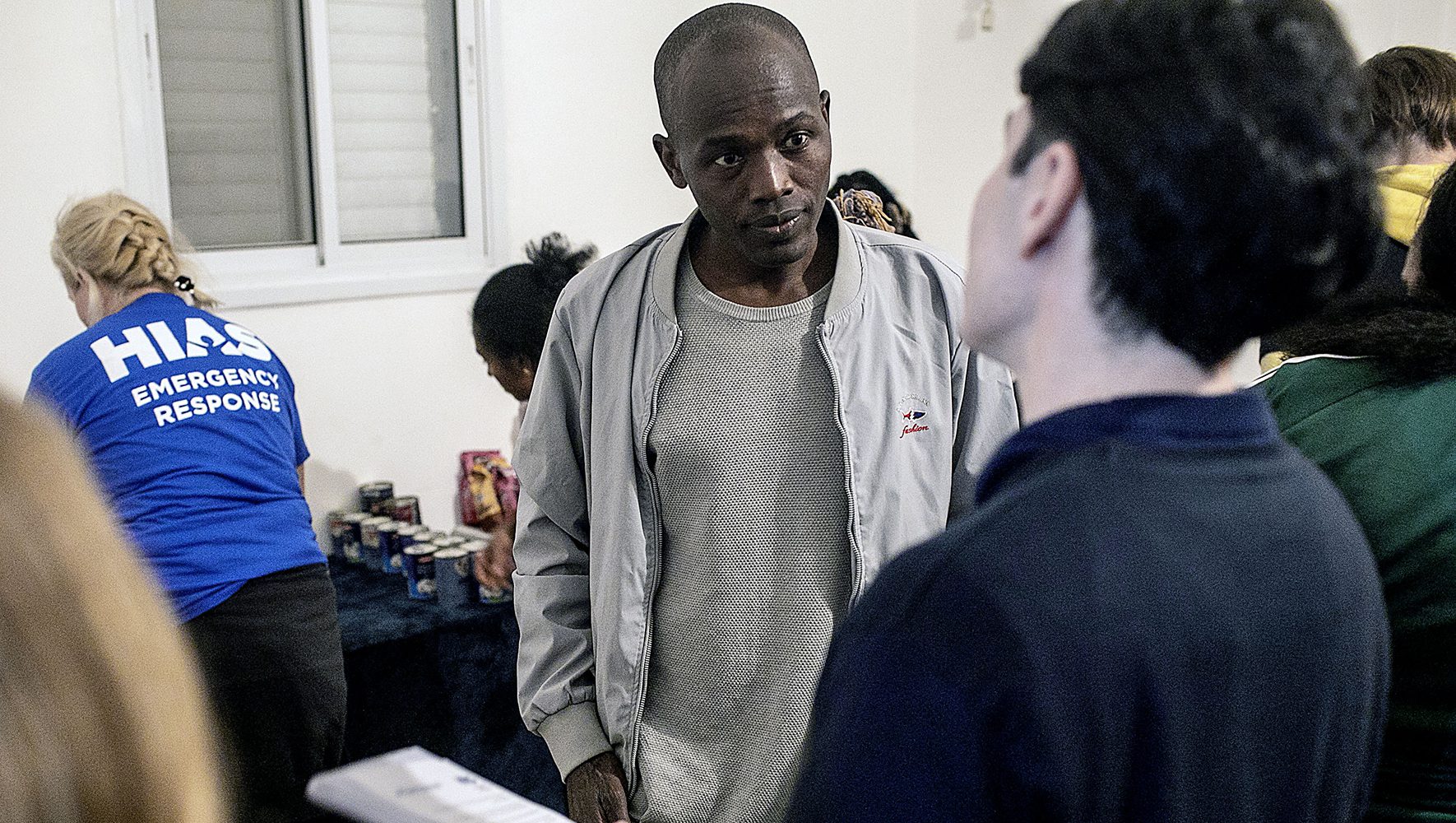
Saleh Adam, an asylum seeker from Sudan, engages in conversation with a volunteer from HIAS during a food distribution program for refugees at the Negev Center for Refugees in Beersheva, Israel, on December 27, 2023. (AG for HIAS)
TEL AVIV — The Hamas attack on Israel last October 7 was so unprecedented, brutal, and barbaric that most people in the country have struggled to find a point of reference. As details emerged about the scale of the massacre of more than 1,200 people, the abduction of some 240 and the rape, maiming, and torture of others, the only credible comparison many Israeli Jews could make was to the Holocaust.
But for others in Israel, the recent attacks conjured a much more recent genocide: the killings in Darfur, Sudan, that began two decades ago.
“I’ve seen this kind of violence before,” said Saleh Adam, a 34-year-old asylum seeker from Sudan, who lives in a kibbutz near the Gaza border that was spared the Hamas atrocities. “It took me back to things I hoped I would never see again.”
Adam is one of some 6,600 Sudanese asylum seekers in Israel, half with residency status, who are currently coping with a double dose of trauma. In addition to facing the shock of Hamas’ assault, these refugees are also preoccupied with the fate of their families in Darfur, where renewed violence has sparked a new round of killing and displacement.
Refugees from Africa began to cross into Israel in 2005, seeking safety after fleeing persecution in their homelands and the threat of deportation from Egypt. Nearly all hailed from Eritrea, where men are often forced into military service with slavery-like conditions, and Sudan, where war and genocide killed an estimated 300,000 people and displaced 2.5 million more between 2003 and 2008. Since their arrival in Israel, refugees have struggled to find jobs and have faced the regular threat of deportation.
“I’ve seen this kind of violence before. It took me back to things I hoped I would never see again.”Saleh Adam, asylum seeker from Sudan
HIAS Responds to Need
Coming with assistance has been HIAS, who offers aid to these asylum seekers and others seeking refuge in Israel. For years HIAS Israel has focused on providing legal protection, employment opportunities, and advocacy for some 30,000 asylum seekers in the country.
Immediately following the October 7 attacks, HIAS activated an Emergency Response team to provide various forms of support for those affected and partnered with a number of organizations, including The Negev Refugees Center. Based in Beersheba, the center works closely with the local Darfuri community struggling to deal with crises here and in their homeland.
“On the one hand, we see a surge in anxiety, a sense of financial insecurity, and overall concern about their future here and their families back home,” said Uri Basan-Dvash, the associate CEO of the center. “On the other hand, there is a strengthening of the community alongside almost a sense of apathy that ‘we’ve been through this before.’ It’s like they feel everything is out of their hands and now it’s just survival mode.”
Two asylum seekers from Africa were killed in the initial attacks. Since then, many others have lost their sense of security.
Adam Mohajir, a 36-year-old Sudanese asylum seeker in Beersheba, said the recent war and the increased threat of rocket fire has triggered new feelings that he may have headed toward the wrong country when he fled Sudan in 2011.
“I like this country and feel like I am part of it,” he said. “But we all arrived here with war trauma from our past, so this is a very difficult experience. It’s hard to always be a victim.”
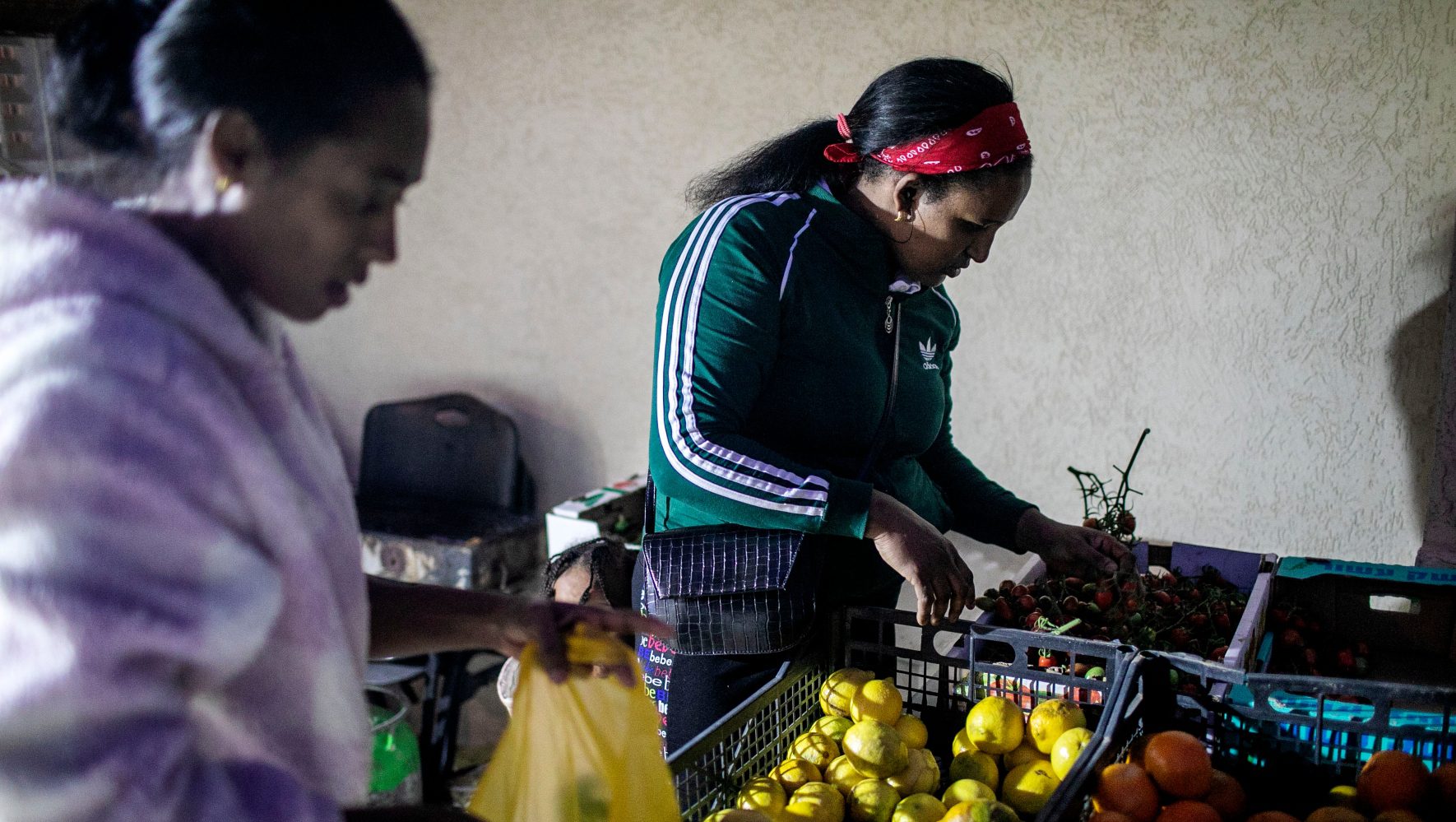
Israeli Court Grants Sudanese Asylum Seekers Temporary Status
Read MoreNowhere Else To Go
For Saleh Adam, the new reality has also served as a reckoning.
Adam arrived alone in Israel 15 years ago after escaping the genocide in Darfur and enduring a treacherous journey through Africa. He has since built a new life for himself in Kibbutz Dorot, an agricultural community about 10 miles from Gaza, where he has found employment and an adoptive family. Even with the constant threat of rocket attacks, Adam had a comfortable routine, studying social work at a nearby college and volunteering for organizations that aided other African asylum seekers. All along, he kept in close contact with his family in Sudan.
The resumption of fighting in April, when tensions between the paramilitary Rapid Support Forces (RSF) and the Sudanese military erupted into open warfare, brought new uncertainty to Adam’s family. It was months before he could speak to his closest family members. Ultimately, he discovered that while their property was damaged, they were thankfully safe.
October 7 shattered that sense of security.
“It was a miracle that we survived,” Adam said, noting that Hamas fighters spared his kibbutz, Dorot, from attack. But the incident was an uncomfortable reminder of his past.
“It makes me wonder if I will ever be safe anywhere,” he added.
A recent HIAS poll of Darfuris in Israel indicated that 75% of them had family members who had been displaced in the most recent fighting and 22% had family members who were killed or physically harmed.
“When we saw that happened here only one word popped in our minds — janjaweed,” said Monim Haroon, who arrived in Israel in 2012 as an asylum seeker from Darfur and now serves as an advocacy and partnership specialist for HIAS.
He was referring to the Sudanese Arab militia responsible for the genocidal violence in Darfur. “Indiscriminate killing, rape, burning people alive — these are the exact things we went through in Darfur. There is a direct connection,” he said.
Haroon said the war with Hamas has made him feel even closer to his adopted home. He said he had already attended the funerals of several Jewish Israeli friends and there has been an outpouring of Sudanese aid efforts, with some even attempting to enlist into the Israeli military.
“We are just like the Israelis,” he said. “We also have nowhere else to go.”
